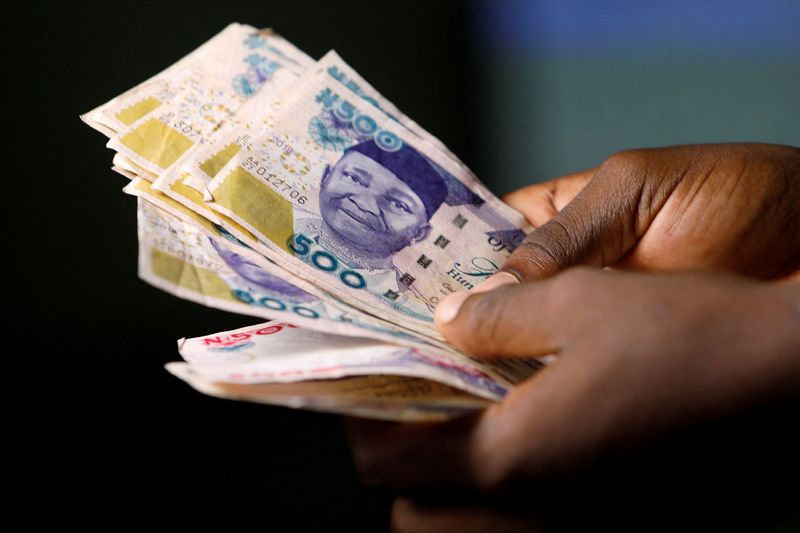By MacDonald Dzirutwe
LAGOS (Reuters) - Nigeria's debt service costs will remain elevated in the short to medium term, which will hobble the country's ability to use fiscal policy to support economic growth, Fitch's sovereign ratings director, Jermaine Leonard, said on Tuesday.
Fitch downgraded Nigeria's rating to 'B-' with a stable outlook last week, in part due to a deterioration in Nigeria's debt servicing costs.
The government's budget deficit as percentage of revenue will rise to 111% next year, up from 74% this year, according to ministry of finance data, showing authorities are spending more than they are collecting to pay off debt.
"That's going to have a deleterious effect on the government's ability to use fiscal policy to support economic growth and to do all the things that it needs to do over the next few years," Leonard told a Lagos conference.
"We do think that this debt servicing issue is something that will remain at the forefront of our concerns over the next two to three years."
Despite high oil prices, Nigeria's capacity to increase revenue has been affected by low oil output, a result of vandalism of pipelines and crude theft.
Nigeria will spend 6.31 trillion naira ($14.30 billion) on servicing its domestic and foreign debt next year.

Leonard, however, said Fitch did not see Nigeria announcing a debt restructuring anytime soon and was comfortable that Africa's biggest economy had enough dollar liquidity to meet external debt repayments in the next two years.
($1 = 441.1900 naira)